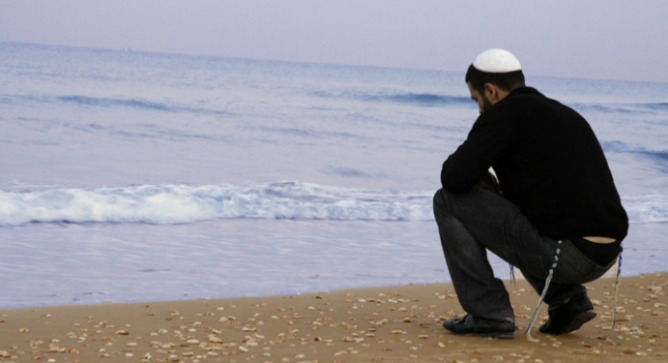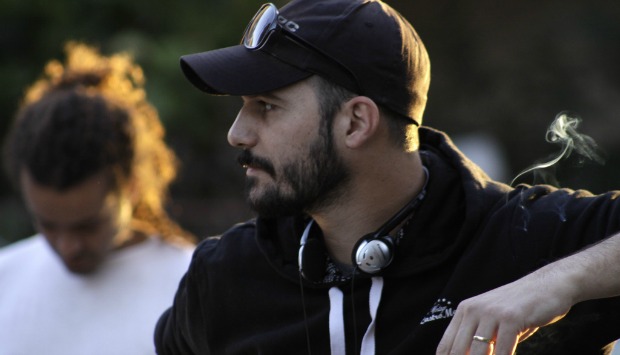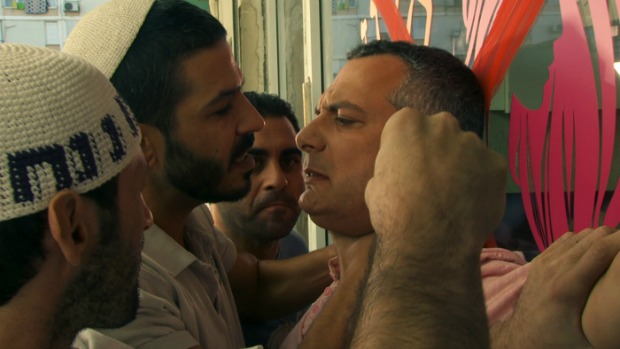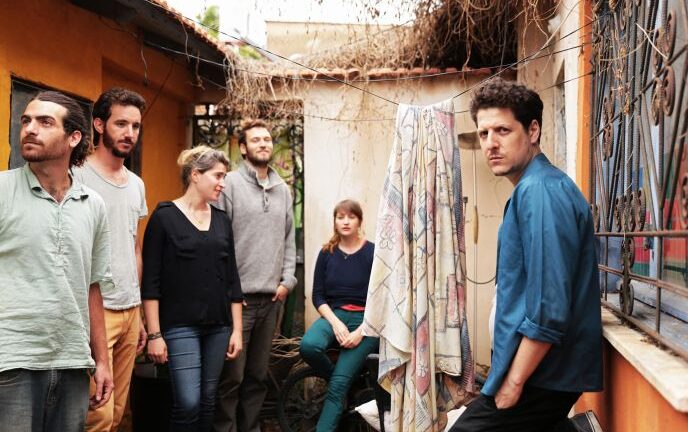When French producer Jerome Bleitrach saw Eliko, a 20-minute short by novice Israeli filmmaker Meni Yaesh that earned special mention at the 2008 Kiev International Film Festival, he recognized a talent worth nurturing.
“He thought I had potential,” Yaesh tells ISRAEL21c. “He asked me to write something for him and he’d find the funding — something from my own environment. He said, ‘Don’t think big, but don’t think small either.’’”
Spread the Word
• Email this article to friends or colleagues
• Share this article on Facebook or Twitter
• Write about and link to this article on your blog
• Local relevancy? Send this article to your local press
The result is Hamashgichim (The Supervisors), which debuted with the English title God’s Neighbors at the Cannes Film Festival in May and captured the Gaul’s Society of Authors, Directors and Composers Award. In July, at the Jerusalem Film Festival, Yaesh’s work won the NIS 50,000 Pirchi Family Award for Best First or Second Israeli Feature.
Shot on location in his native Bat Yam in just 15 days, the movie is described by its writer and director as “a universal story about religious extremists fighting in the name of God,” focused on the faith journey of the hero, Avi (Roy Assaf), who falls in love with a non-religious girl his friends are hassling for the way she dresses.
“I wanted to give the audience the whole entertainment package — action, comedy, romance and drama — without losing that focus,” Yaesh says.
The Cannes judges called God’s Neighbors “a dynamic and fascinating look at a population trapped by religion and violence.” The seminal film world journal Hollywood Reporter concluded: “What looks at the outset to be a straightforward vigilante movie about a trio of hot-headed religious watchdogs in Israel turns into a worthy study of personal maturation and growth in God’s Neighbors.” And Variety called it an “assured, provocative debut.”
“I couldn’t believe this kind of film would get to Cannes, where there are always lots of art-house films,” says Yaesh, 32. “But they said this film couldn’t come at a better time than now. The critics are just loving us in a way we cannot describe. I think that’s because it speaks to people on all kinds of levels.”
The Transfax Film Productions movie opened in Israel on July 8, “and now it’s the biggest test to see if crowds really love it,” says its creator, whose grandmother’s house and local grocery are seen in the film.
The short production time came after much prep work on the part of the actors and the director of photography, Shahak Paz, a good friend of Yaesh. “Marek Rozenbaum, our Israeli producer, did his own magic by making this happen as well.”
Sparks of faith
Growing up in traditional, working-class Bat Yam south of Tel Aviv, Yaesh enjoyed a steady diet of Jean-Claude Van Damme and Chuck Norris action pictures. Eliko, his graduation project at the Minshar School of Cinema in Tel Aviv, explored the mingling of religion and crime he’d experienced among his own crowd — characters steeped in violence, sex and drugs who struggle to transition as they begin embracing spirituality.
“It was a fascinating subject for me, and I know it by heart because I grew up with these types,” says Yaesh. “When I was a teen, I was pretty wild.”
For his feature film, he simply expanded on Eliko, using the same actors. “You see the love and energy on the screen,” says Yaesh, who calls Assaf “my best buddy, my DeNiro.”
He didn’t merely want to depict the characters as mean bastards or cool dudes. “I wanted you to see their hearts, and that confuses people. You rarely see this mix of conflict with God and belief. You can tell the guys are really trying to find an answer.”
It’s startling to see Avi praying earnestly and then beating up punks and toking on a joint with his friends, played by Gal Friedman and Itzik Golan. The three characters are each involved in Breslov Hassidism to varying degrees.
“I exposed the secret that they smoke pot and hash,” Yaesh says with a laugh. “I’m not saying Breslovers are like that. These kids smoked before and they’re smoking now; they beat up people before and they’re beating them up now, for what they see as religious reasons. This is what happens to guys who were a little violent before — they are twisting the Breslov philosophy. The rabbis disagree [with this behavior], but they believe little by little it will go away.”
Like many of his childhood friends, Yaesh also became enamored of the Breslov lifestyle and is still evolving religiously.
“Breslov is really strong here in Bat Yam because it’s not harsh — you don’t need to disconnect yourself. You just need to connect to God. Youngsters really love this. I wanted to show in my film how you can start with sparks of faith in your heart, and learn to do the biggest mitzvah, ‘love your neighbor as yourself.’ I also wanted to break that stigma about Breslovers, who sometimes dance in the street and look like they’re high. But they’re only high from spirituality, from joy and happiness.”
His next film will be about a bouncer at a rough nightclub who loses his violent tendencies as soon as his wife becomes pregnant. “It’s another subject close to my heart,” says Yaesh. He and his wife, award-winning filmmaker Keren Yedaya, have a three-year-old son and are expecting another around Rosh Hashana.
“All the characters in the movie – the gangster, the undercover cop — are dealing with fatherhood, asking themselves what kind of father they are,” Yaesh relates. “Get ready: I’m going to upgrade the action because I love this genre. But I will not forget to put soul in it.”



















